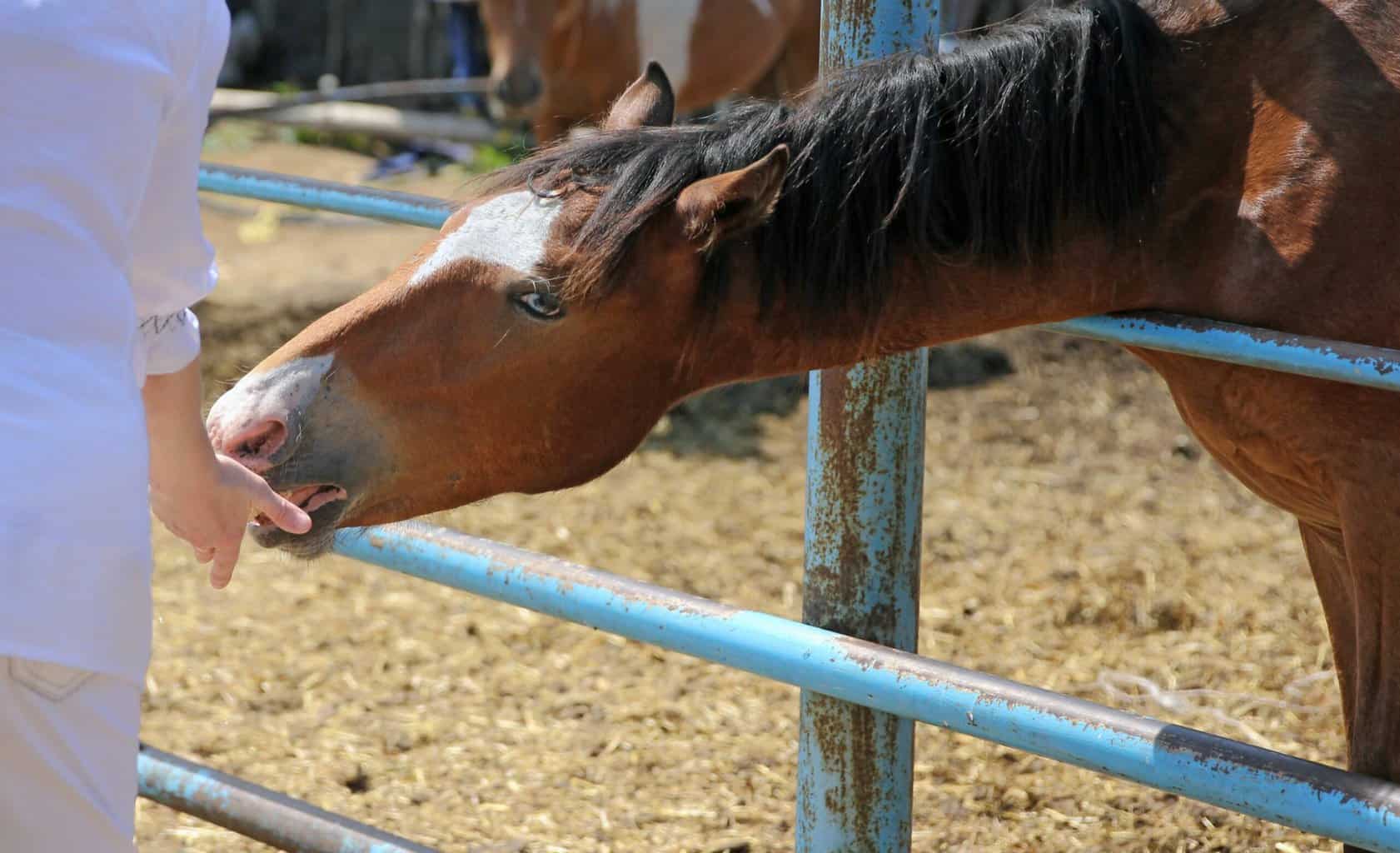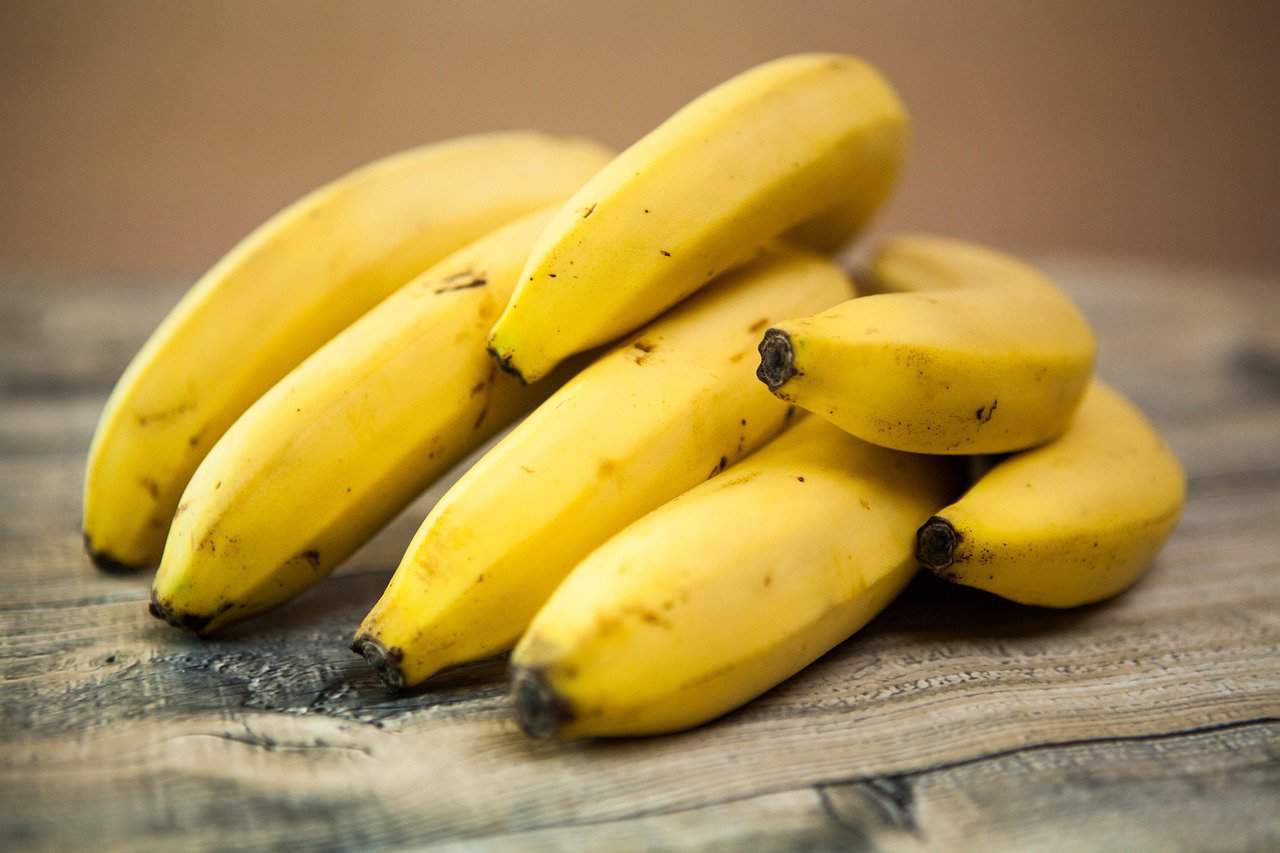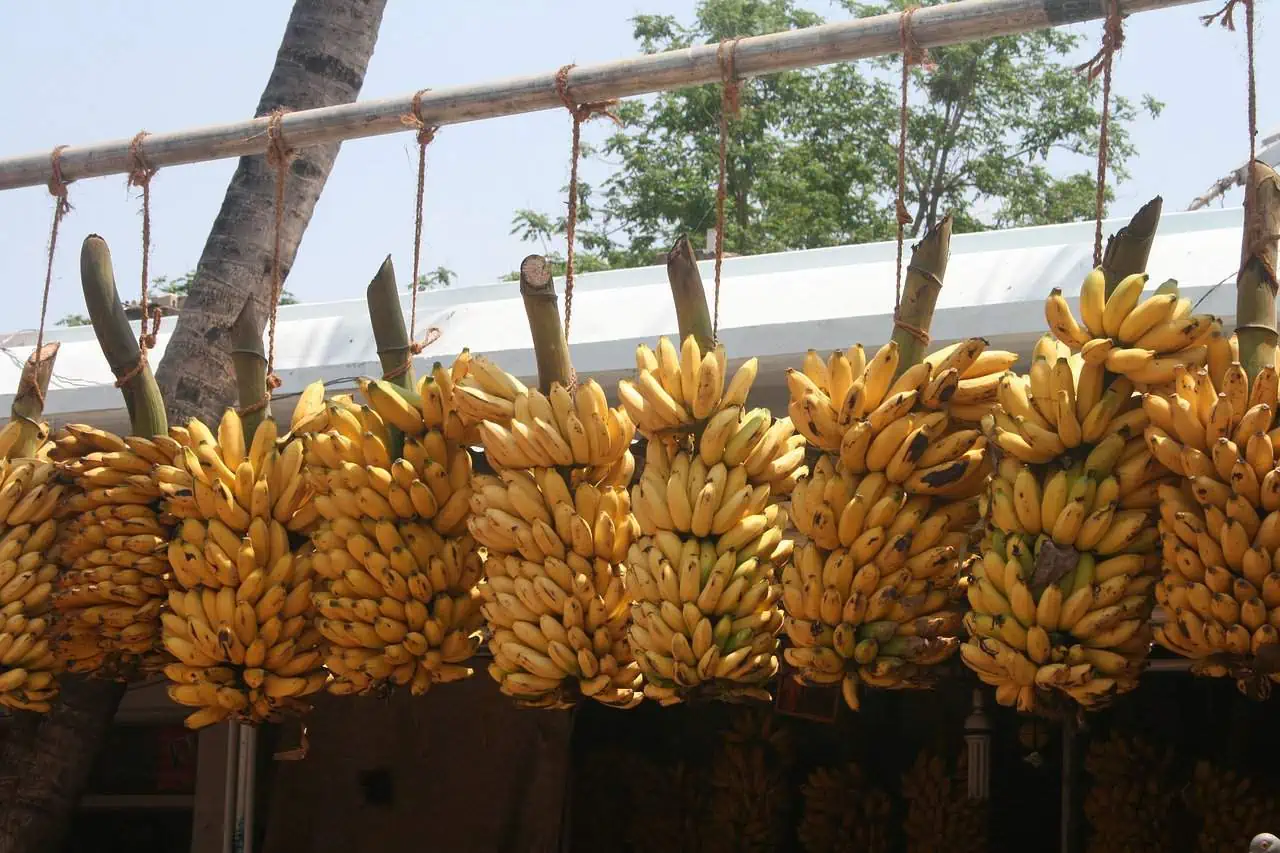- What is a Gaited Horse - October 5, 2023
- What to Look at When Getting a New Farrier - September 21, 2023
- Best Horse Feeds for Older Horses - September 21, 2023
A lady at my stable yard walks up to her pony each day and casually tosses him a banana (skin and all), which the Appaloosa pony gobbles up with absolute enthusiasm. I am always surprised by some things people feed their horses as treats since I tend to stick to carrots, apples, and commercial treats. But can horses eat bananas?
I began to wonder about the benefit of feeding bananas. When my friendly vet popped in for some vaccinations, I decided to get her take on the banana-feeding dilemma.
My own horse, McG, who typically eats everything he can get his chubby lips on, refused the banana I offered him. I wondered if he knew something but just didn’t want to “neigh.” Was it a good idea to feed your horse a banana, or could it pose serious risks?
Here’s what my vet said, backed by some in-depth research.
Bottom Line Up Front: Can You Feed Your Horse Bananas?
You can safely feed your horse bananas (aka plantains) as a fresh treat, taking care to feed it in moderation. Most horses love the buttery taste of bananas, a powerhouse of nutrients that can help supplement your horse’s diet. Bananas are also easy to chew and soft on the horse’s digestion due to their mushy texture.
Are Bananas Safe for Horses to Eat?
Bananas are considered a safe treat to feed horses. However, this doesn’t mean you can feed your horse a whole bunch every day (or even every other day). Some considerations are involved in choosing any horse treat, and feeding bananas should be a carefully weighed-up decision.
Let’s consider what types of bananas are best to feed your horse and how to feed bananas to your horse.
Types of Bananas
Bananas are safe to feed in most forms.
| Types of Bananas and Edibility | |
| Fresh bananas | The easiest and most available form of banana that is free of any additives. |
| Green bananas | Unripened bananas contain many feel-good hormones that are beneficial to calming a horse.
Lower digestibility and palatability when fed green (so take care not to overfeed). |
| Ripe bananas | Highest digestibility for horses and best taste too as it’s the most sugar-rich form of bananas. |
| Over-ripe bananas | Soft, palatable, and highly digestible form of banana.
Rich in antioxidants for cancer-fighting properties. |
| Frozen bananas | Once thawed, frozen bananas can be fed to horses (palatability depends on the banana’s ripeness). |
| Ground bananas (banana flour) | Banana flour is expensive but high in nutritional value and can be used as a feed additive. |
| Pulped bananas | Banana pulp can be fed when it’s freshly made and without preservatives. |
How to Safely Feed Bananas
While you’ll likely offer your horse a bite from your banana as a try the first time, you should engage in safe banana feeding to ensure your horse can enjoy bananas without any potential adverse side effects.
Here’s a handy checklist to help you safely feed bananas to your horse:
- Remove the skin of the banana, as most horses don’t like the bitter skins or peels of bananas (though these are not toxic if your horse likes the skin or peel).
- Cut the banana into quarters to ensure your horse does not gobble it up and potentially choke.
- Check the banana for signs of mold or insects that could cause severe illness if your horse ingests it.
- Defrost or thaw frozen bananas before feeding to prevent digestive complications.
- Mix dried bananas or banana flour with soaked feed to avoid choking.
- Feed pulped bananas in a bowl or feed trough to allow the horse to lick the sticky mush.
- Avoid feeding human foods that contain bananas, as these likely contain preservatives and added sugars, which harm horses.
Banana Benefits for Horses
So what’s in a banana that makes it such an excellent treat to feed to your horse? A look at the humble banana’s nutritional profile may shed some light. The values here are for a small bunch of bananas (four bananas of seven inches each).
| Nutritional Content of Bananas | Quantities |
| Water | 75.3 g |
| Energy | 98 kcal |
| Carbohydrates | 23 g |
| Protein | 0.74 g |
| Fiber | 4.62 g |
| Sugar | 15.8 g |
| Magnesium | 28 mg |
| Potassium | 326 mg |
| Phosphorus | 22 mg |
| Vitamin C | 12.3 mg |
There are several benefits to feeding your horse a banana once or twice a week. Overfeeding isn’t a great idea, so take care of the feeding size and frequency to keep your horse safe. Benefits include:
- Mineral and vitamin boost for older or ill horses: Bananas’ soft and palatable nature makes them ideally suited to help boost a horse that’s under condition. You can hide medicines in some banana pieces if your horse likes bananas.
- Soothes stomach ulcers: Banana is said to help soothe stomach ulcers, thanks to the high potassium and magnesium quantities.
- Helps with hydration: A borderline dehydrated horse could get some extra fluids thanks to a banana’s pulp if they are happy to eat it. The additional minerals also help address electrolyte imbalances.
- A tasty alternative treat: If your horse likes to eat a variety of treats, feeding bananas is a nice and healthy way to alternate between different treats.
Banana Baddies for Horses
Of course, there are always some risks to keep an eye on when feeding bananas to your horse.
- Moldy bananas: When the banana is overripe, the peels can become contaminated by mold spores, which can also affect the fruit. Mold is very harmful to any animal. Always check bananas for mold before feeding.
- Dried bananas: Usually made from green bananas, the dried slices can become a choking hazard and even break a tooth while the horse chews. While not toxic, it’s not the safest way to feed bananas to your horse.
- Insect damage: Insects in bananas can also cause digestive distress to horses. Never feed bananas without first washing the fruit, as any presence of worm eggs on the peel can lead to an increase in worm load in the horse’s digestive tract.
- High sugar levels: Banana has a moderately high sugar level, so if your horse is insulin resistant or has a metabolic disorder, the sugar can cause a spike.
- Choking on the fruit or peels: A greedy horse may gobble up the banana, leading to choke.
- Human foods with bananas: While a horse can eat bananas, they should never eat a processed form of bananas such as banana loaf, banana bread, banana muffins, or other treats containing bananas. Additives, preservatives, sweeteners, and colorants are all very harmful to your horse’s health.
Banana Feeding Portions
So how much banana is a good-size portion?
Horses can eat about two bananas per week. A safe bet is to feed about a third of a medium-sized banana every day or every second day.
Overfeeding your horse with bananas can create gastrointestinal issues, especially if your horse is allergic to bananas.
When Horses Shouldn’t Eat Bananas
How do you know when you shouldn’t feed your horse bananas?
- When your horse refuses bananas—there might be a reason they don’t want to eat it.
- When your horse has previously choked on bananas or shown signs of an allergic reaction to bananas.
- When your horse struggles to eat bananas (usually the peel), you should consider how you feed them (peel the bananas instead).
- If feeding treats cause your horse to become unruly or aggressive.
- If your mare is in-foal or lactating, excessive amounts of bananas may flavor the milk, which could put the foal off from drinking.
FAQs
Answer: While feeding your horse bananas won’t fix an ulcer, it won’t cause any injury, and the additional potassium and magnesium in bananas may help with the horse’s stomach pH.
Answer: Bananas are high in sugar, so feeding the fruit in moderation is best to prevent sugar spikes and insulin resistance. Young and very old horses may be most vulnerable to sugar sensitivity.
Answer: Horses shouldn’t be fed foods with pips or stones, such as pears, peaches, avocados, or prunes. Lawn clippings may be contaminated while feeding human foods like chocolate and bread is also not advisable.
Conclusion
My horse still doesn’t like bananas, so it’s not on the top of my list of treats to feed him, but he is very curious about it and has a good sniff at the ripe fruit when I eat a banana. Maybe one day, he will decide to have a chomp.
Feeding bananas as a treat to your horses is not harmful, and many horses enjoy the sweet buttery taste of bananas. However, as a responsible horse owner, ensure you feed correctly and stick to the recommended portion size.
For more information on how to care for your horse, read my horse ownership guide.
Happy trails!




